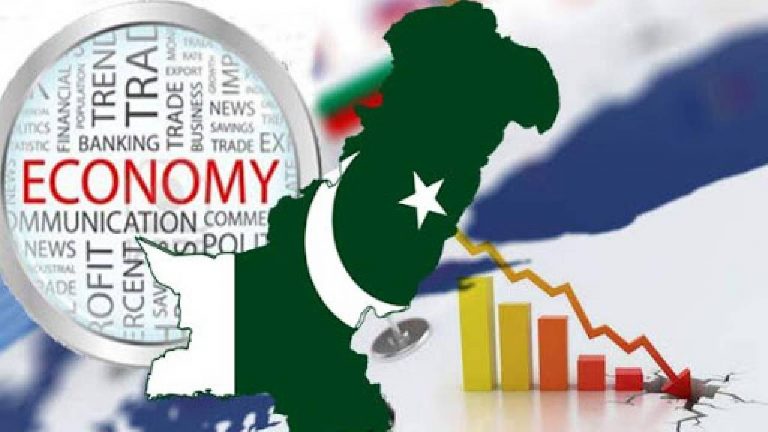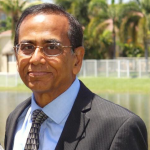
Inflation is now backbreaking for its middle and poor classes; currency has not stopped falling in value, and the foreign reserves have been allowed to drop down to its unbelievable, precariously low level.
Nazarul Islam
As in the preceding year, ‘Politics’ is most likely expected to consume the lion’s share of Pakistan’s time and attention in the current year 2023. The country’s unfortunate turn to economic instability last spring, had failed to cease, with the melodramatic, no-confidence vote in parliament last April. The event only managed to ‘oust’ the inexperienced Pakistani Prime Minister Imran Khan, from his office.
Instability and polarization have only heightened in this country, since April 9, 2022: Imran Khan has led a popular opposition movement against the incumbent coalition government and the military staging a series of large rallies across the country through the year.
Power struggle in Pakistan has been allowed to continue into 2023. While the incumbent government has not ceded to Khan’s demand for early elections, country-wide elections are constitutionally mandated to be held by October this year. Obviously, the situation has been a windfall for the weak and unstable government politically, to hold popular Imran and his followers off as long as it possibly can. Perhaps a last ditch effort could be manipulated after it tries to dig itself out of Pakistan’s urgent economic crisis and its lackluster domestic performance (its diplomatic foreign policy approach has fared better, but that may not matter for elections).
Pretty much, the previous year has cost it tremendously, in the shape of its dwindling political capital. Imran Khan political party PTI did exceedingly well in a set of by-elections held in July and October. The state organs following ‘advice’ of the army, tried to mire Imran Khan and his party in legal cases, relying on a familiar playbook used against opposition politicians in Pakistan, albeit to limited effect, with the courts’ involvement.
Imran Khan’s party, the PTI still controls two of Pakistan’s four provinces, Punjab and Khyber Pakhtunkhwa (KP), and the incumbent federal government’s (extra-legal) ‘efforts’ in order to wrest power from it in Punjab, the largest province, have been unsuccessful (thanks to the courts). The year is off to a dramatic start, with Khan’s party initiating the process to dissolve the Punjab and KP assemblies this month to pressure the federal government into early elections.
‘Politics’ is most likely expected to consume the lion’s share of Pakistan’s time and attention in the current year 2023.
And….for the politically obsessed Pakistan, the biggest question remains who will win the next general election. Will former Prime Minister Nawaz Sharif (brother of current Prime Minister Shehbaz Sharif) return to Pakistan to run as the head of his party, the PML-N? Can Imran Khan win on the strength of his popular support, despite his confrontation with the military?
Whatever the outcome, the Pakistani diaspora in the US can say only so much—given the histories of the main contenders: The direction of the country is most likely will not result in any change.
For months, Pakistan’s economy has been in real doldrums—even predating the summer’s catastrophic floods. Inflation is now backbreaking for its middle and poor classes. Pakistani currency has not stopped falling in value, as it rolls down a steep precise. And the foreign reserves have been allowed to drop down to it’s unbelievable, precariously low level of $2.3 billion, enough to cover two weeks’ worth of imports, raising the possibility of certain default. Certainly, ‘default’ is a curse word in the country, to be uttered in public. No one wishes to hear this. It echoes piercingly into human ears, and unfolds the dire optics of Sri Lanka, in mind.
Pakistani politicians bestow serious addiction to crisis of all varieties—the most prominent among the love affairs, being the economic crisis. The cycle visits the country around every few years, borne out of an economy that doesn’t produce enough and spends too much, and is thus reliant on external debt. Each successive crisis is worse as the debt bill gets larger and payments become due.
In the perilous year 2022, which ended a few days ago internal political instability and the flooding catastrophe have worsened it. There is a significant external element to the crisis as well, with rising global food and fuel prices in the wake of Russia’s war in Ukraine. The combination of all these factors has spelled perhaps the greatest economic challenge Pakistan has ever seen.
Pakistan has a commitment to return back $73 billion by the year 2025, to debtors. Will the country be able to do so without debt restructuring? Or, anything for that matter?
And yet, the government has been mired in politicking, and the release of a $1.1 billion loan tranche from the International Monetary Fund (IMF) remains stalled, (read shut) as Islamabad has definitely pushed back the IMF’s conditions. To appease to the key lenders, Pakistan’s ruling politicians noted for corruption and notorieties, while holding public offices have now resorted to limiting imports and shutting down malls and wedding halls early. These are but petty, cosmetic measures that is bound to fail, therefore cannot adequately address the problem.
Again, this country may end up avoiding default for the time being with IMF help and loans from friendly countries, particularly their traditional savior, Saudi Arabia and other Gulf nations. However, this time the financial assistance from them is unlikely to address the clear underlying malaise of the economy – and the fact that something fundamentally will need to change, in terms of how much the economy produces versus how much it spends, to avoid ‘default’ prospect looming on Pakistanis.
Without an iota of doubt, Pakistan’s ruling political parties seem to have neither the political will, nor ability to bring about such change.
Pakistan has a commitment to return back $73 billion by the year 2025, to debtors. Will the country be able to do so without debt restructuring? Or, anything for that matter?
_________________
 The Bengal-born writer Nazarul Islam is a senior educationist based in USA. He writes for Sindh Courier and the newspapers of Bangladesh, India and America. He is author of a recently published book ‘Chasing Hope’ – a compilation of his articles.
The Bengal-born writer Nazarul Islam is a senior educationist based in USA. He writes for Sindh Courier and the newspapers of Bangladesh, India and America. He is author of a recently published book ‘Chasing Hope’ – a compilation of his articles.
[The views expressed by the author are his personal and do not reflect the editorial policy of Sindh Courier]